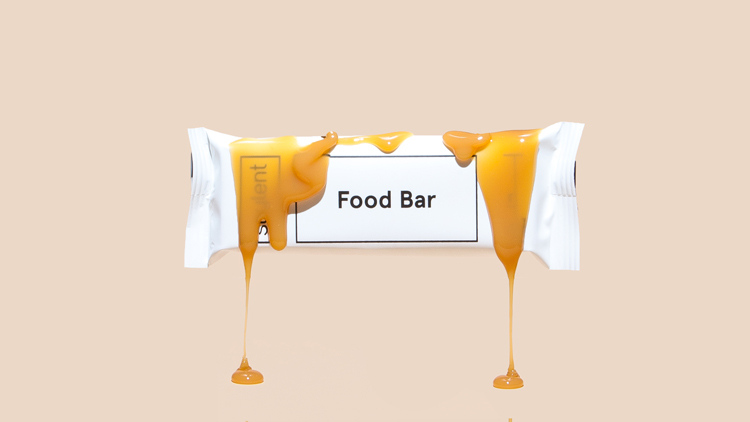 |
| Soylent Logo |
Controversy: Soylent, a company headquartered in Los Angeles, is a meal replacement company that is advertised to meet all the nutritional requirements for the average adult. The company was created in 2014 as the result of a 30-day meal replacement experiment, and a crowdfunding campaign that received almost one and a half million dollars in preorders. 1.5 million dollars puts Soylent at one of the most historically crowdfunded projects ever. Naturally, their products fit in conveniently with the lifestyle of many people in The Silicon Valley. In the Silicon Valley people are constantly in a hurry, and do not have time for preparing foods for a proper diet. Soylent currently sells drinks, coffees and powders that are supposed to give consumers a healthy diet without extreme amounts of sugar, fat and cholesterol. CEO Rob Rhinehart even endorses their statement that “Soylent is a pioneer in food technology, producing healthy, functional foods that are good for the body and the planet.” But in 2015, a nonprofit environmental/corporate social responsibility group began litigation on Soylent. Their argument was that Soylent did not label the levels of lead and cadmium in their products correctly. This was only beginning of their problems. It wasn’t until October of 2016 that consumers started to have real health problems due to the now discontinued, Soylent Bar. With the bars coming out in August, it only took about 2 months for the public to have negative feedback. The product was originally advertised with this description, “With only 250 calories, Soylent Bar makes an excellent snack or small meal… Our newest product offers the same complete nutrition, but in a lighter, more portable form factor.” What was proven to be true in just a short amount of time, was that the bar did not make an excellent snack, and more importantly it did not offer the same complete nutrition. The bars resulted in a number of customers reporting with serious gastrointestinal issues directly caused by Soylent Bars. Little did consumers know the“future of food,” otherwise classified as generally safe by the FDA, would result in symptoms like explosive diarrhea and vomiting. One person reported that they felt as if they were having a huge sugar crash followed by numerous events of throwing up. They stated that it was the worst they felt in their entire life. Shortly after, the throwing up was accompanied by diarrhea. Others have reported symptoms of burning up, profuse sweating, dizziness, lightheadedness and overall weakness. They never found the answer to why everyone was getting sick; thus the Soylent Bar was quickly discontinued. One may ask how was a mistake of this magnitude looked over in the production of the product?
Stakeholders
There are many different groups of people who were impacted by the soylent bar recall, these people are usually referred to as “stakeholders.” The first, and most obvious group are the consumers. The people who actually went online and purchased the bars are all being affected. Because Soylent is recalling the bars, people have gotten sick or have had to return their purchased food. The second big group is the company in itself. This puts a big question mark on all of their other products as well. The company and its shareholders may want to evaluate their business model or their scientific testing procedures. Another group involved would be the employees at Soylent. This case may cause some of them to be skeptical of the companies true integrity. Also if the company is in danger, that also means their jobs are in danger. Lastly, the entire meal replacement industry is negatively impacted. Their main objective, as they are a new market, is to sell more people on the idea of the market. But a recall like this can only hurt the outlook for the meal replacement industry.
Individualism
 |
| Soylent Bar Packaging Covered in Goo |
Individualism is one of the few ethical theories we used in this class in order to analyze ethical controversies. Individualism is the idea of putting the individual's needs before anyone else's. In this case the individual would be Soylent, and their needs would be maximizing shareholder profits. Soylent has an obligation give healthy returns to the people who invested in their company. In the business world, this mostly translates to cutting costs and increasing revenues. For Soylent to have avoided this problem, it would have taken more money and time to have proper research to ensure that the product was completely safe. In an individualist point of view, the extra money and time is pointless, especially because they were already approved by the FDA. As a result they were able to sell their new product line to many people. The only drawback is that the company ended up having to pay all of their unhappy customers back which meant that there were much smaller profits. On top of that, the company's reputation also took a hit, which will likely result in less sales in the future. An individualist would not have agreed with the companies decisions because it did not help increase profits or shareholder wealth.
Utilitarianism
According to Utilitarianism, actions are ethical when they promote happiness to all of the stakeholders. The important thing with utilitarians is that they do not value one person's happiness over someone else's. Happiness is the only thing of intrinsic value. Like mentioned before, the main stakeholders in this controversy are the consumers, the business, the employees and the industry. The unique thing about this controversy is that none of them benefited and none of them were happy about it. On the contrary, the stakeholders were mostly furious with the outcome. The consumers are obviously very upset and most of them feel that they were lied to. Additionally, some of the consumers got violently ill due to the Soylent bars. The Soylent business, on the other hand, was also at detriment. They lost profits, market share, reputation and loyal customers. The third shareholders involved were the employees, who are also unhappy with the result. Their jobs came at risk as well as the company's survival. Not to mention that they have to live with the feeling that they failed on a product that made many people sick. Lastly, the industry is not happy about this because they are attempting to grow. With a case like this, more and more people are going to be drawn away from the industry. No happiness was received in this case for any of the stakeholders. This is exactly why a utilitarian would not have agreed with Soylent's actions.
Kantianism
Kantianism is the third of four ethical theories I will use to analyze the case of Soylent Bars. In correspondence to Kantianism, one should act rationally at all times. Also, a Kantian should help people act rationally, respect people, and be motivated by goodwill. For someone to be motivated by goodwill, one must be rational and rightly motivated. Kantians would have a similar reaction of disagreement to Soylent because of the way they were irrational. They were not rational because they did not thoroughly test the product before issuing it to customers. They needed to test the product extensively and also put more resources into research and development. They also did not react rationally because they did not follow the formula for humanity. The statement says that people should act with ends in mind rather than just the means. In the case of Soylent, this means that they should’ve acted with health of the customer in mind, rather than just the economic impacts. When the company issued its new product line they had one thing in mind, to make more money. Soylent exploited their position in the market to push across an unfinished product which is completely unethical in the eyes of a Kantian. They did not have the motivation of goodwill, they were strictly motivated by self-interest and not because it was the right thing to do.
Virtue Theory
 |
| After Eating a Soylent Bar, Passenger Gets Sick |
The last ethical theory I will use to evaluate this controversy is the Virtue theory, which is based on four virtue characteristics. If a company fits in the four characteristics, they are acting ethically in the view of the Virtue Theory. Courage, honesty, temperance, and justice are the characteristics Soylent had to show in order to be ethical; unfortunately, they do not fit the criteria. One could argue that they showed courage as well as a little bit of justice. They had to be courageous and confident to release a product line without fully testing it. That is a risky call but ended up being a failure. But instead of owning up to their mistake, they chose to try and blame the flour that was being sold to them. But if this were true, Soylent Bars would still exist today if they only needed uncorrupted flour. The fact that the bars are no longer available tells me that there was something else seriously wrong that did not involve the flour. Also, this is another reason that the company was dishonest, along with the obvious false advertisement. Temperance is the idea of setting realistic goals and expectations. Soylent did not display temperance because they rushed into a product that was not fully developed. A realistic expectation or goal would have been longer time frame for more testing. Lastly, one could argue that it was just of Soylent to give customers their money back and recall the bars. But I do not believe that it was just of them to false advertise their product and make their own customers sick. There is no justice in making a loyal customer violently ill. Instead of being courageous, honest and just; Soylent was greedy, wasteful and put others in danger.
Works Cited
Souppouris, Aaron. “Soylent Blames Product Recalls on Algae.” Engadget, 9 Nov. 2016, www.engadget.com/2016/11/08/soylent-recall-algal-flour/.
“Soylent Bars Recalled after Dozens of Unconfirmed Illnesses.” Food Safety News, 22 Oct. 2016, www.foodsafetynews.com/2016/10/soylent-food-bars-recalled-after-dozens-of-unconfirmed-illnesses/#.WgYuDltSyM8.
“Soylent Food Bars Make Customers Sick: Reports.” Time, Time, time.com/4529709/soylent-food-bar-recall/.
Soylent. “You'll Never Believe This, But Soylent Is Being Recalled Again.” Grub Street, www.grubstreet.com/2017/04/soylent-recalls-powder-yet-again.html.
Soylentme. “Update on Soylent Bar.” Soylent, 12 Oct. 2016, blog.soylent.com/post/151720602057/update-on-soylent-bar.
Yuhas, Alan. “People Made Sick by Soylent Bars Report 'Gelatinous Substance' on Wrapper.” The Guardian, Guardian News and Media, 13 Oct. 2016, www.theguardian.com/technology/2016/oct/13/soylent-bars-people-sick-meal-replacement.


No comments:
Post a Comment